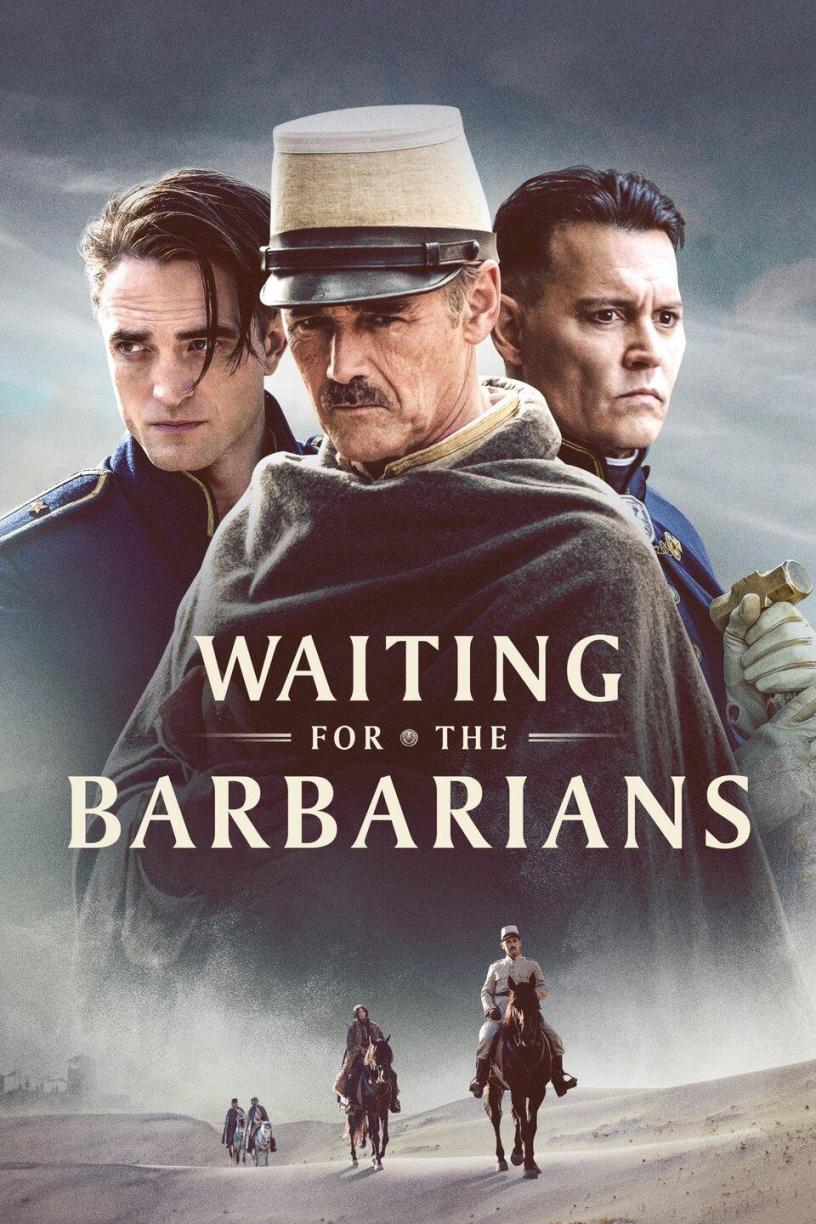
‘Waiting for the Barbarians’ is an unexpectedly curious beast. The film, which came out in a pandemic affected year, gives the impression of being another typical guns ‘n horses Western, but while it does have both of those, it is a much more thoughtful and moody piece of work. Based on an early novel by the two-time Booker prize winning South African author, J. M. Coetzee, it has been adapted as a screenplay by the author himself for the screen. The story plays out in an unnamed remote frontier town and is an obvious allegory of colonialism and the oftentimes unfounded fear of the unknown which the colonial ‘civilized’ powers imprint in the mind of their subjects. Considering the author’s homeland’s own unsavoury history with brutal apartheid regimes in the past, the theme is obvious, but it is a general scourge which could also have been based on the early European settlers in the Americas and their hounding of the Native Indian races.
Mark Rylance plays the primary protagonist here, a colonial magistrate of a remote outpost of an unnamed colonial empire. He doesn’t believe in using iron handed or fear mongering tactics to keep his spot on the desert in order. Instead, he does enough to get by and nudge things in the right direction as needed. But there are ripples soon on the surface of this relative calm. Colonel Joll, played by a brutally spare and effective Johnny Depp in something of almost an extended cameo, rolls into town with his coterie and sets about doing his best to upset the delicate balance of the ecosystem. Soon, he has vanished into the grim deserts and brought back local tribespeople of whom he tacks on charges of conspiracy against the empire and locks up in the hitherto rarely used prisons. Using methods of torture, he shocks the magistrate with the scenes of depravity he leaves behind while extracting purported ‘confessions’. Once Colonel Joll leaves, the magistrate can never see things in the same relaxed manner as earlier. Almost as if, prior to this, his eyes hadn’t opened to the brutalities of the wider empire he is a part of he now is in a perpetual haze, which is exacerbated when he comes across a blinded young woman, a native whom he takes under his care. His interactions with this woman are defined by the regret he feels at his peers actions towards this race and to her family in particular, but a genuine affection and love start coming into the picture. As a course of penance or love towards her, he sets off with a small group of soldiers across the wide desert vistas in search of her clan to whom she wants to go back. This journey though proves to be his undoing as he is branded a traitor and conspirator against the government on his return and subject to ignominies and brutality himself. Robert Pattinson makes an appearance in the latter part of the movie as another callous officer, Mandel, who partakes in this demeaning of the magistrate. But ultimately the movie seems to ask – who really are the barbarians here? And is the inevitable wait brought upon by themselves going to end in absolute destruction?
Rylance is the perfect person to play the role of the magistrate. His pained and soft countenance is an apt fit for the character of the initially slightly idealistic and ignorant magistrate and when the inevitable reckoning happens, the change in his character’s understanding of the situation he is in is portrayed with grim feeling. It is a testament to his performance that despite the shortcomings in the script and screenplay, we are still able to feel for the character. Because there are shortcomings for sure. The characters, including a wickedly good Johnny Depp, are set up really well for the story that follows and yet the story, or the screenplay doesn’t take them as far as it could have. Pattinson does a fine job, but his character is slightly muddled and unfocused. There are some beautiful vistas of the desert shot during the magistrate’s journey, but that part and its aftermath appear half-baked at times. The need for thoughtful exposition over exuberant gun play is understandable with the theme in question, but here you feel it has been taken a bit too far. A little bit more of forward movement in the film and, dare I say, a little action would have helped audiences to keep invested in the travails of the magistrate and the wider kingdom.
That doesn’t mean this isn’t worth a dekko though. For the impressive performances and the ominous theme, one which may still be relevant in the current millennium, this is a thought-provoking piece of art even if it is not as good as it could have been.
